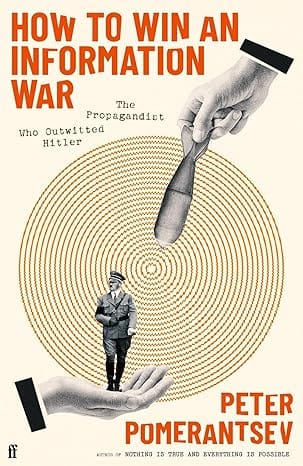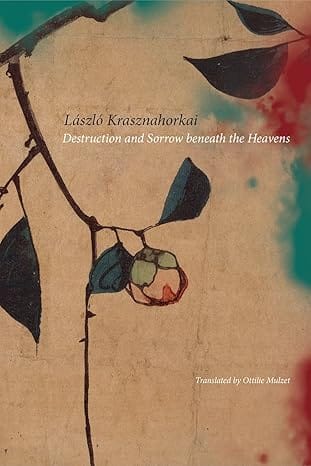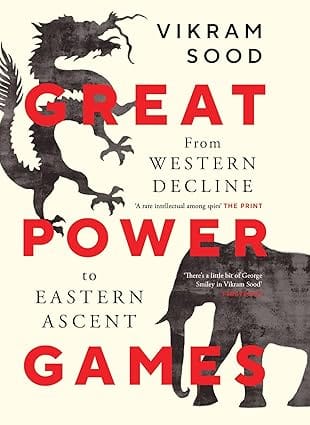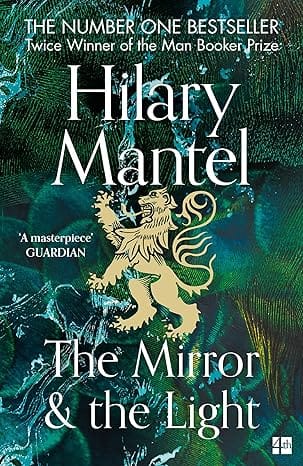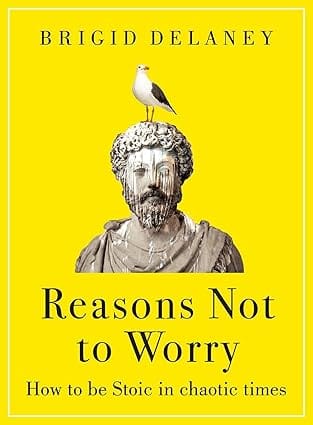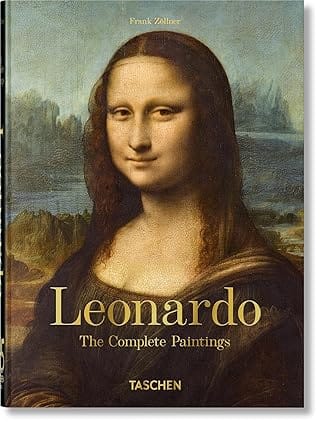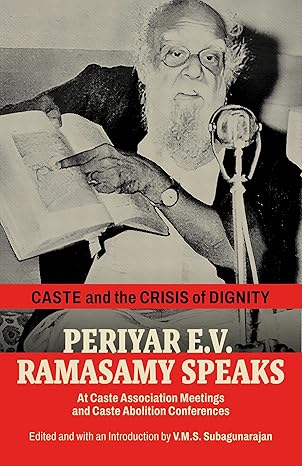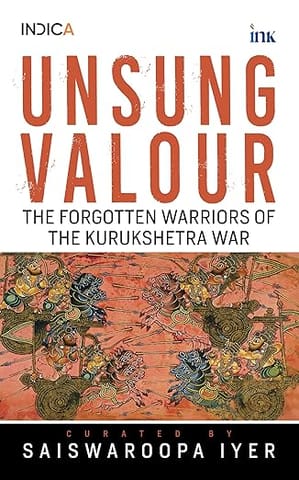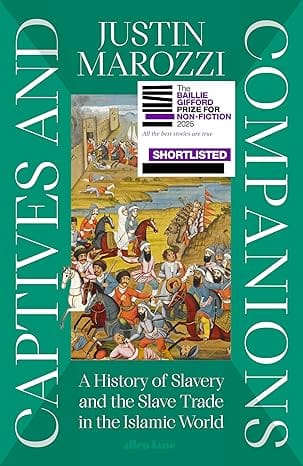WELCOME TO MIDLAND BOOK SHOP!
SHOP FOR
- Non-ficton
- Non-ficton
- Contemporary Fiction
- Contemporary Fiction
- Children
- Children
- Comics & Graphic Novels
- Comics & Graphic Novels
- Non-Fiction
- Non-Fiction
- Fiction
- Fiction
Shop No.20, Aurobindo Palace Market, Hauz Khas, Near Church +91 9818282497 | 011 26867121 110016 New Delhi IN
Midland The Book Shop ™
Shop No.20, Aurobindo Palace Market, Hauz Khas, Near Church +91 9818282497 | 011 26867121 New Delhi, IN
+919871604786 https://www.midlandbookshop.com/s/607fe93d7eafcac1f2c73ea4/677cda367903fd013d69b606/without-tag-line-480x480.png" [email protected]9780571366354 68ca88773dee49df9b06f2b4 How To Win An Information War The Propagandist Who Outwitted Hitler Bbc R4 Book Of The Week https://www.midlandbookshop.com/s/607fe93d7eafcac1f2c73ea4/68ca88793dee49df9b06f2c0/810c5kog4zl-_sy466_.jpg 9780571366354
From one of our leading experts on disinformation, the incredible true story of the complex and largely forgotten WWII propagandist Sefton Delmer - and what we can learn from him today.
BY THE AUTHOR OF NOTHING IS TRUE AND EVERYTHING IS POSSIBLE
'Lively and elegant.' THE TIMES
'History at its most urgent.' BEN JUDAH
'An essential read.' MAIL ON SUNDAY
Summer 1941, Hitler and his allies rule Europe from the Atlantic to the Black Sea. But inside Germany, there is a notable voice of dissent, Der Chef, whose radio broadcasts skilfully question Nazi doctrine. What listeners don't know is that Der Chef is a fiction, a character created by the British propagandist Sefton Delmer.
As Peter Pomerantsev uncovers Delmer's fascinating lost story, he is called into a wartime propaganda effort of his own: the global response to Putin's invasion of Ukraine.
BY THE AUTHOR OF NOTHING IS TRUE AND EVERYTHING IS POSSIBLE
'Lively and elegant.' THE TIMES
'History at its most urgent.' BEN JUDAH
'An essential read.' MAIL ON SUNDAY
Summer 1941, Hitler and his allies rule Europe from the Atlantic to the Black Sea. But inside Germany, there is a notable voice of dissent, Der Chef, whose radio broadcasts skilfully question Nazi doctrine. What listeners don't know is that Der Chef is a fiction, a character created by the British propagandist Sefton Delmer.
As Peter Pomerantsev uncovers Delmer's fascinating lost story, he is called into a wartime propaganda effort of his own: the global response to Putin's invasion of Ukraine.
Review
This beautifully crafted book . . . [is] a terrific tale that couldn't be more timely. - Mark Urban, The Times, the 5 best world affairs books of the year
Both history and a rallying cry . . . an illuminating guide to the nature and possibilities of propaganda. Written with palpable urgency, it cements the author's reputation as one of the leading experts in information warfare [...] it even manages to strike a tentative note of optimism [...] good can prevail of over evil once again. Only, we must all muster our intelligence and creativity. - TLS
Lively and elegant [...]This is Pomerantsev's third book about propaganda (after Nothing Is True and Everything Is Possible and This Is Not Propaganda), all vividly reported, well researched and crisply argued. - Times
How to Win an Information War succeeds brilliantly in shedding light on the first question that Pomerantsev sought to answer: namely, what makes people susceptible to the blindness that propaganda can create? But the book's real importance lies in the fact that it ultimately fails to provide the answer to his second question: how might people be induced to break out of it? - Irish Times
How to Win an Information War covers important topics, not least Pomerantsev's reflections on the future of propaganda in a digital world and how the enduring aim of propaganda (to give a sense of belonging) are dark arts being exploited by Vladimir Putin and Donald Trump in our own era. - Independent
The author notes - just as the reader may do - structural similarities between Hitler's speeches and those made by Trump and Putin . . . Where does that leave us? Most controversially, with a ref
Both history and a rallying cry . . . an illuminating guide to the nature and possibilities of propaganda. Written with palpable urgency, it cements the author's reputation as one of the leading experts in information warfare [...] it even manages to strike a tentative note of optimism [...] good can prevail of over evil once again. Only, we must all muster our intelligence and creativity. - TLS
Lively and elegant [...]This is Pomerantsev's third book about propaganda (after Nothing Is True and Everything Is Possible and This Is Not Propaganda), all vividly reported, well researched and crisply argued. - Times
How to Win an Information War succeeds brilliantly in shedding light on the first question that Pomerantsev sought to answer: namely, what makes people susceptible to the blindness that propaganda can create? But the book's real importance lies in the fact that it ultimately fails to provide the answer to his second question: how might people be induced to break out of it? - Irish Times
How to Win an Information War covers important topics, not least Pomerantsev's reflections on the future of propaganda in a digital world and how the enduring aim of propaganda (to give a sense of belonging) are dark arts being exploited by Vladimir Putin and Donald Trump in our own era. - Independent
The author notes - just as the reader may do - structural similarities between Hitler's speeches and those made by Trump and Putin . . . Where does that leave us? Most controversially, with a ref
in stockINR 719
1 1
Email ID already exists!
Your Current password is incorrect
Password Updated Successfully
Thanks for your Feedback
- Home
- History
- How To Win An Information War The Propagandist Who Outwitted Hitler Bbc R4 Book Of The Week
How To Win An Information War The Propagandist Who Outwitted Hitler Bbc R4 Book Of The Week
ISBN: 9780571366354
₹719
₹899 (20% OFF)SIZE GUIDE
Sold By: Hauz Khas - Aurobindo Market
Details
- ISBN: 9780571366354
- Author: Peter Pomerantsev
- Publisher: Faber And Faber
- Pages: 304
- Format: Paperback
Book Description
From one of our leading experts on disinformation, the incredible true story of the complex and largely forgotten WWII propagandist Sefton Delmer - and what we can learn from him today.
BY THE AUTHOR OF NOTHING IS TRUE AND EVERYTHING IS POSSIBLE
'Lively and elegant.' THE TIMES
'History at its most urgent.' BEN JUDAH
'An essential read.' MAIL ON SUNDAY
Summer 1941, Hitler and his allies rule Europe from the Atlantic to the Black Sea. But inside Germany, there is a notable voice of dissent, Der Chef, whose radio broadcasts skilfully question Nazi doctrine. What listeners don't know is that Der Chef is a fiction, a character created by the British propagandist Sefton Delmer.
As Peter Pomerantsev uncovers Delmer's fascinating lost story, he is called into a wartime propaganda effort of his own: the global response to Putin's invasion of Ukraine.
BY THE AUTHOR OF NOTHING IS TRUE AND EVERYTHING IS POSSIBLE
'Lively and elegant.' THE TIMES
'History at its most urgent.' BEN JUDAH
'An essential read.' MAIL ON SUNDAY
Summer 1941, Hitler and his allies rule Europe from the Atlantic to the Black Sea. But inside Germany, there is a notable voice of dissent, Der Chef, whose radio broadcasts skilfully question Nazi doctrine. What listeners don't know is that Der Chef is a fiction, a character created by the British propagandist Sefton Delmer.
As Peter Pomerantsev uncovers Delmer's fascinating lost story, he is called into a wartime propaganda effort of his own: the global response to Putin's invasion of Ukraine.
Review
This beautifully crafted book . . . [is] a terrific tale that couldn't be more timely. - Mark Urban, The Times, the 5 best world affairs books of the year
Both history and a rallying cry . . . an illuminating guide to the nature and possibilities of propaganda. Written with palpable urgency, it cements the author's reputation as one of the leading experts in information warfare [...] it even manages to strike a tentative note of optimism [...] good can prevail of over evil once again. Only, we must all muster our intelligence and creativity. - TLS
Lively and elegant [...]This is Pomerantsev's third book about propaganda (after Nothing Is True and Everything Is Possible and This Is Not Propaganda), all vividly reported, well researched and crisply argued. - Times
How to Win an Information War succeeds brilliantly in shedding light on the first question that Pomerantsev sought to answer: namely, what makes people susceptible to the blindness that propaganda can create? But the book's real importance lies in the fact that it ultimately fails to provide the answer to his second question: how might people be induced to break out of it? - Irish Times
How to Win an Information War covers important topics, not least Pomerantsev's reflections on the future of propaganda in a digital world and how the enduring aim of propaganda (to give a sense of belonging) are dark arts being exploited by Vladimir Putin and Donald Trump in our own era. - Independent
The author notes - just as the reader may do - structural similarities between Hitler's speeches and those made by Trump and Putin . . . Where does that leave us? Most controversially, with a ref
Both history and a rallying cry . . . an illuminating guide to the nature and possibilities of propaganda. Written with palpable urgency, it cements the author's reputation as one of the leading experts in information warfare [...] it even manages to strike a tentative note of optimism [...] good can prevail of over evil once again. Only, we must all muster our intelligence and creativity. - TLS
Lively and elegant [...]This is Pomerantsev's third book about propaganda (after Nothing Is True and Everything Is Possible and This Is Not Propaganda), all vividly reported, well researched and crisply argued. - Times
How to Win an Information War succeeds brilliantly in shedding light on the first question that Pomerantsev sought to answer: namely, what makes people susceptible to the blindness that propaganda can create? But the book's real importance lies in the fact that it ultimately fails to provide the answer to his second question: how might people be induced to break out of it? - Irish Times
How to Win an Information War covers important topics, not least Pomerantsev's reflections on the future of propaganda in a digital world and how the enduring aim of propaganda (to give a sense of belonging) are dark arts being exploited by Vladimir Putin and Donald Trump in our own era. - Independent
The author notes - just as the reader may do - structural similarities between Hitler's speeches and those made by Trump and Putin . . . Where does that leave us? Most controversially, with a ref
User reviews
NEWSLETTER
Subscribe to get Email Updates!
Thanks for subscribing.
Your response has been recorded.

India's Iconic & Independent Book Store offering a vast selection of books across a variety of genres Since 1978.
"We Believe In The Power of Books" Our mission is to make books accessible to everyone, and to cultivate a culture of reading and learning. We strive to provide a wide range of books, from classic literature, sci-fi and fantasy, to graphic novels, biographies and self-help books, so that everyone can find something to read.
Whether you’re looking for your next great read, a gift for someone special, or just browsing, Midland is here to make your book-buying experience easy and enjoyable.
We are shipping pan India and across the world.
For Bulk Order / Corporate Gifting
 +91 9818282497 |
+91 9818282497 |  [email protected]
[email protected]
Click To Know More
INFORMATION
QUICK LINKS
ADDRESS
Midland Book Shop - Hauz Khas
Shop No.20, Aurobindo Palace Market, Near Church, New Delhi
Shop No.20, Aurobindo Palace Market, Near Church, New Delhi

